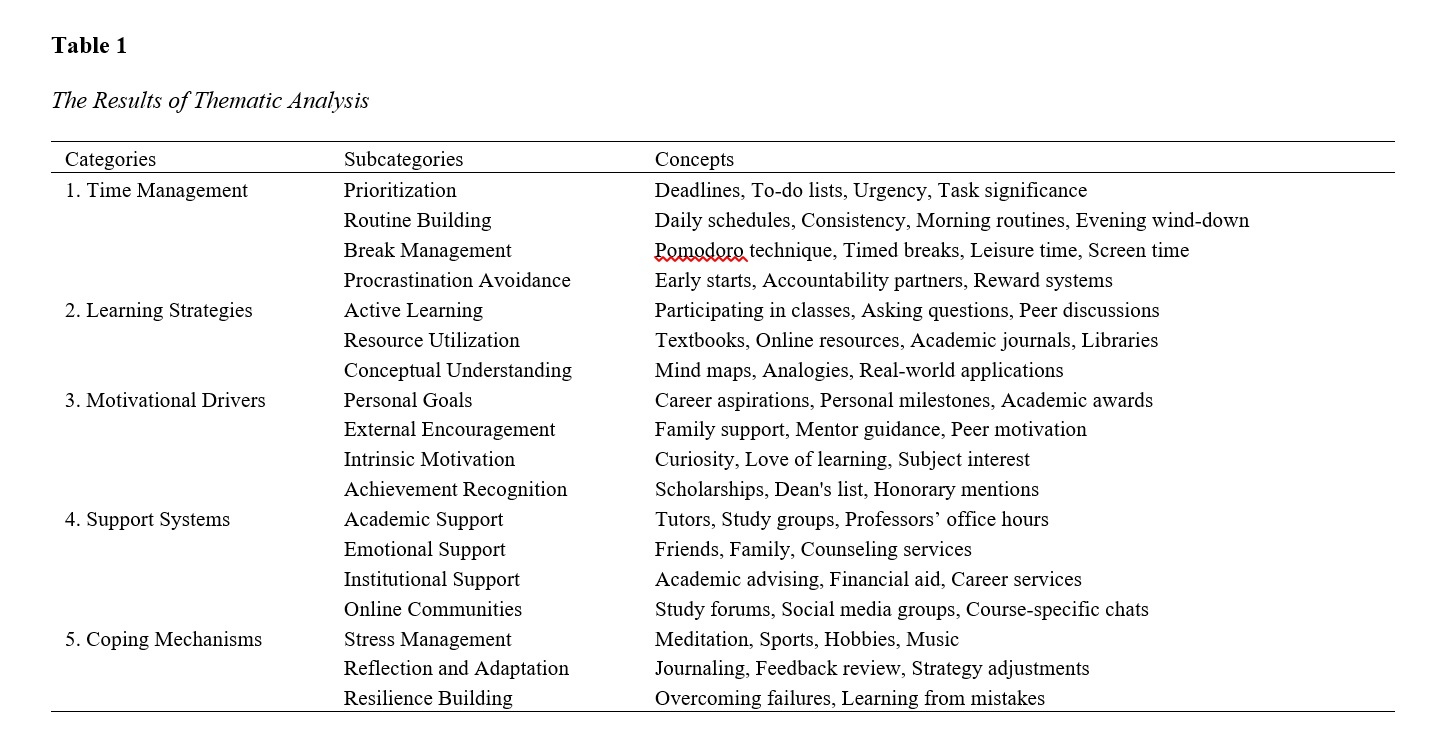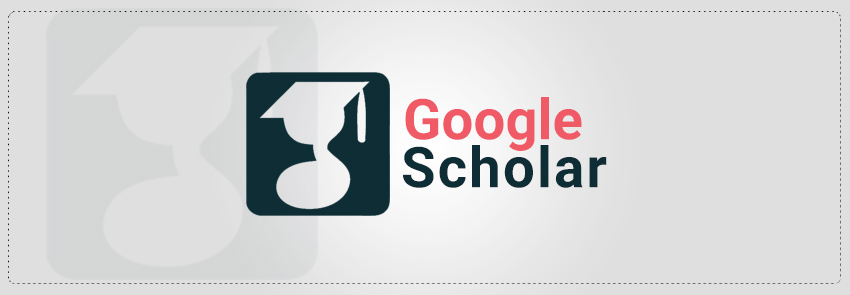Strategies for Enhancing Academic Motivation: Insights from Successful Students
Abstract
Academic motivation is crucial for successful educational outcomes. This qualitative study explores the strategies employed by successful students to enhance their academic motivation, aiming to identify the mechanisms behind their success and provide actionable insights for educators and learners alike. The study employed a qualitative research design with data collected through semi-structured interviews. A total of 25 academically successful students from various disciplines participated in the study. The interviews were transcribed and analyzed using NVivo software to facilitate thematic analysis, aiming for theoretical saturation. Five main themes were identified as central to enhancing academic motivation: Time Management, Learning Strategies, Motivational Drivers, Support Systems, and Coping Mechanisms. Each theme encompassed multiple categories with specific concepts: Time Management included prioritization, routine building, break management, and procrastination avoidance. Learning Strategies covered active learning, resource utilization, and conceptual understanding. Motivational Drivers were characterized by personal goals, external encouragement, intrinsic motivation, and achievement recognition. Support Systems involved academic support, emotional support, institutional support, and online communities. Coping Mechanisms included stress management, reflection and adaptation, and resilience building. The study concludes that successful academic motivation is influenced by a combination of well-developed time management skills, active and resourceful learning strategies, strong motivational drivers, robust support systems, and effective coping mechanisms. These factors collectively contribute to the academic success of students.
Downloads

Downloads
Additional Files
Published
License
Copyright (c) 2024 Ebrahim Shirvani, Zahra Mirsolymani (Author); Hajar Parvin (Reviewer); Sahebe Mosavi (Author)

This work is licensed under a Creative Commons Attribution-NonCommercial 4.0 International License.







